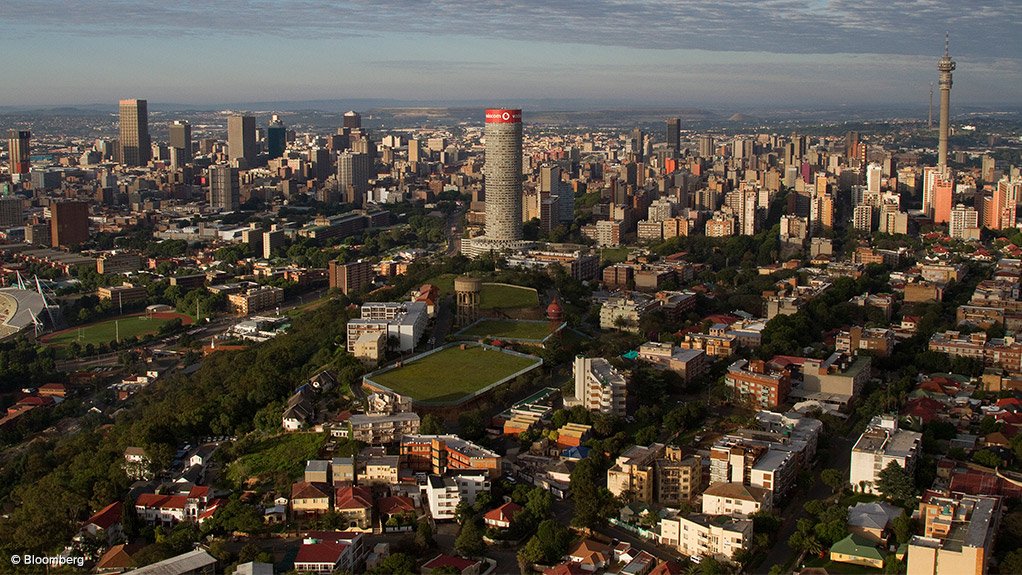South Africa’s urban population is growing larger and younger, and it is envisaged that nearly 80% of the total population will be living in an urban area by 2050.
Cooperative Governance and Traditional Affairs (COGTA) Deputy Minister Andries Nel said this on Tuesday in the National Assembly, when he briefed the Portfolio Committee on the draft Integrated Urban Development Framework (IUDF).
“South Africa is urbanising rapidly. The United Nations estimates that 71.3% of South Africa’s population will live in urban areas by 2030. Nearly 80% by 2050. South Africa urban population is growing larger and younger. Two-thirds of South African youth live in urban areas,” said Nel.
He said cities and large towns produce over 80% of the national gross value added and metros are growing twice as fast as other cities.
The Deputy Minister said towns have much higher – about 40% – average incomes, compared to the country as a whole. He said employment grew twice as fast in metros.
“Between 1996 and 2012, metros accounted for 75% of all net jobs created in South Africa. Despite this, ‘urbanisation of poverty’ is increasing, especially in townships, informal settlements and inner cities.
“Urban areas are dynamically linked to rural areas – flows of people, natural and economic resources. Urban and rural areas are becoming increasingly integrated, as a result of better transport, communications and migration,” Nel said.
He said interdependence of rural and urban spaces needs a comprehensive, integrated approach to urban development.
He also said high concentrations of people, buildings and infrastructure, increases risk to natural disasters, climate change and variability.
Reducing urban risk is critical to achieving sustainable urban growth. Safety, particularly in public spaces, is an essential ingredient for the creation of liveable and prosperous cities.
The Deputy Minister said urban spaces need to be designed and managed in a way that makes citizens feel safe from violence and crime.
“By 2030, South Africa should see reviving rural areas and creating more integrated, balanced and vibrant urban settlements.
“To achieve this, the country must clarify and relentlessly pursue a national vision for spatial development,” he said.
Integrated Urban Development Framework (IUDF)
The IUDF seeks to unlock the synergy that comes from coordinated investments in people and places, as well as marking a new deal for South African cities and towns. The IUDF builds on the National Development Plan (NDP) and its vision for urban South Africa.
“We want cities to be inclusive, resilient and liveable,” he said.
The Deputy Minister said the National Development Plan (NDP) places 'transforming human settlements and the national space economy' at its centre.
The IUDF aims to guide development of inclusive, resilient and liveable urban settlements. It provides a new approach to urban investment by the developmental state, guiding the private sector and households.
Its vision speaks to liveable, safe, efficient cities – socially integrated, economically inclusive and residents participate actively in urban life.
Nel said IUDF vision recognises that South Africa has different types of cities and towns, which have different roles and requirements, and the vision must be interpreted and pursued in differentiated and locally relevant ways.
To achieve this vision, he said four strategic goals are introduced: Access, growth, governance and spatial transformation.
- Access – To ensure people have access to social and economic services, opportunities and choices.
- Growth – To harness urban dynamism for inclusive, sustainable economic growth and development.
- Governance – To enhance the capacity of the state and its citizens to work together to achieve social integration.
- Spatial transformation – To forge new spatial forms in settlement, transport, social and economic areas.
The Deputy Minister said IUDF is being consulted on extensively, and the final draft will be complete by November 2015.
EMAIL THIS ARTICLE SAVE THIS ARTICLE
To subscribe email subscriptions@creamermedia.co.za or click here
To advertise email advertising@creamermedia.co.za or click here











